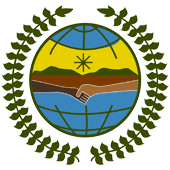 |
| Photo Credit: UNPFII |
During this year’s Permanent Forum on Indigenous Issues the World Bank engaged with Indigenous Peoples in a number of formal and informal sessions. Formally these engagements took place during plenary sessions of the Permanent Forum and informally during side events and organized dialogues. The size of the World Bank’s team attending the Forum, which came up to 30 people in comparison to just a handful during last year’s event, demonstrates the increased relevance the institution places on recognizing indigenous peoples as an important constituent in its work.
The World Bank’s most important item of engagement was the review process with respect to its social and environmental safeguards that the World Bank is currently undertaking, which include a policy on indigenous peoples (Operational Policy 4.10). As the current policy was drafted in 2005, many of the numerous comments made by Indigenous Peoples during the discussions related to a demand to bring the policy in line with the UN Declaration on the Rights of Indigenous Peoples (UNDRIP 2007), including the right to free, prior and informed consent (FPIC). Furthermore, representatives called on the World Bank to not only examine the impact of UNDRIP on OP 4.10 but on all of the Bank’s policies. It was highlighted that the importance of updating OP 4.10 cannot be overestimated, as in 2012 alone the safeguards were triggered by 20% of all World Bank projects, not including projects where they potentially should have been triggered but were not.
Newly appointed Senior Advisor for Indigenous Peoples and Ethnic Minorities, Luis Felipe Duchicela of the World Bank, responded to the criticism, highlighting that while OP 4.10 recognizes human rights the Bank is willing to take UNDRIP into account as part of the overall safeguard review process it is currently undertaking. However, he noted, in the end the World Bank’s board comprised of governments will have to approve any safeguards review and it was not up to the institution alone to implement such change.
Duchicela furthermore announced the founding of a World Bank advisory council made up with Indigenous People in the near future. He formally asked the Permanent Forum to help support the World Bank in setting up such a council as well as engaging in ongoing dialogue with Indigenous Peoples.
Permanent Forum members responded to this request by indicating their willingness to support the Bank in this process. However, they highlighted the need to also involve the two other UN mechanisms working on indigenous issues, namely the Expert Mechanism on the Rights of Indigenous Peoples (EMRIP) and the Special Rapporteur on the rights of indigenous peoples, a position currently held by Professor James Anaya.
An additional dialogue took place with representatives of African indigenous representatives as well as representatives of IPACC and Eli Makagon, Lesle Jansen and Johanna von Braun from Natural Justice, during which the World Bank requested feedback from participants on how future dialogues with Indigenous Peoples from the African continent should take place. Participants highlighted the need to split such consultations into sub regional engagements in North, Southern, East, West and Central Africa and provide for the different language groups on the continent. Participants also emphasised that information on such dialogues will have to be announced sufficiently in advance, unlike the previous dialogues that the World Bank conducted in the ongoing safeguards review process. Participants highlighted that such dialogues would be very important especially given the recent World Bank announcement of a 1 billion USD grant for the Central Lakes region in Africa, nearly half of which will be directed to hydro-power facilities.
